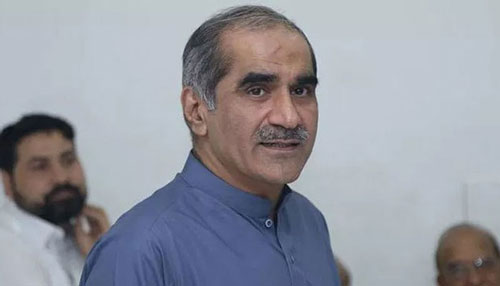Federal Minister for Railways and Aviation Khawaja Saad Rafique has said that the Pakistan Muslim League-Nawaz (PML-N) will introduce reforms in the judicial system of the country for quick and doubtless justice to people after coming to power.
Addressing an organisational meeting of the PML-N in his constituency here on Sunday, he said that it was a responsibility of the parliament to provide swift justice to the common man. He said that if the PML-N got an opportunity, such a judicial system would be introduce through legislation in which favoritism would not have any place.
The minister said that the PML-N would also introduce a revolutionary economic framework for which the PML-N was needed the support of people and it was not possible in just six months. In the new economic framework, tax-net would be expanded without putting burden on the poor and deprived citizens of the country. The government structure would be reduced and expenditures of all government institutions would be decreased, he promised.
He said that the PML-N would work for the common man instead of the rich, adding that he was part of the current democratic system for changing the system. “This democratic system of billionaires cannot run the country progressively,” he added.
The minister said that the election had become a commercial activity, as political parties did not give tickets to political workers if they did not have resources to contest elections. He said that the political parties were not well organised and it was a responsibility of political parties and their leaderships to introduce a democratic culture in their parties and allow political workers to come forward. “We will continue to raise our voice for the rights of workers in parties,” he pledged.
Saad said that political workers should decide that who would be their representative in the union council, provincial assemblies or in the National Assembly. If the parties allowed their gross-roots level workers to participate in the decision-making process, then the doctrine of necessity would die down ultimately, and no one would be able to impose martial law in the country, he said.










